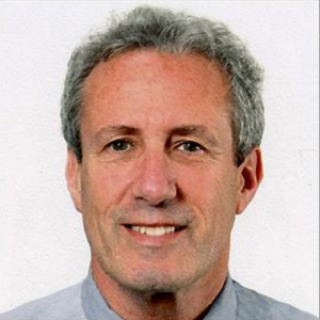Out of Context
Can Standards Create Better Teaching and Learning Opportunities?
January 12, 2017
It may be difficult to pinpoint the origin of the movement toward establishing standards in early education. Some claim state child care licensing regulations represented the first significant stake in the ground as basic safeguards for young children’s health and safety were established. Others point to defining professional criteria for educators in public schools, broadening over time to encompass early education with credentials such as the Child Development Associate. Head Start moved the field forward with comprehensive program Performance Standards in 1975 and policies such as the “70.2” addressing parent involvement. Based on its developmentally appropriate practices, NAEYC established quality standards for voluntary center-based program accreditation on a national level in 1985.
Some contend adoption of the National Education Goals 2000 by President Bush and the nation’s 50 governors in 1990 catapulted early learning standards with its Goal One declaration, “By the year 2000, all children in America will start school ready to learn” and its ensuing technical report delineating the five dimensions of early development and learning. Federal initiatives such as Good Start, Grow Smart, Race to the Top Early Learning Challenge, and Preschool Development Grants further reinforced the role of standards in early education. Coming simultaneously at and from the field, movement toward standards for early education resembled an uncoordinated charge, but today we begin to see order emerging from the chaos.
As our profession matures, each of these influences has contributed to greater understanding and, when appropriately applied, appreciation of standards. There is no single set of standards; rather, a constellation of professional, program, content, and performance standards form a system designed to help all children achieve their potential. We’ll continue to refine standards in response to evolving research and lessons about effective practices, and our field will become stronger as a result. Some professionals within our ranks still bristle at the notion of standards applied to the early years, yet there is general agreement that standards as a statement of shared expectations is a positive, long-awaited development .
While a synergy forms through the interplay of professional, program, content, and performance standards, I think we neglect framing one critical category- context standards.
Context standards address the physical and psychological conditions responsible for establishing a supportive, engaging environment encouraging children to learn and teachers to teach. The context in which children learn is equally important to the what, when, why, how, by whom and for whom of their education. No less important is the context created where teachers and administrators can excel in their profession and provide superb learning opportunities for every child. The context of teaching and learning can be defined in our policies, practices, and relationships, and should not be absent from our discussions of standards or measures of accountability.
Context standards are nothing new, though they may be partially veiled as issues of “school climate,” “safe schools,” “educational equity and opportunity” and so on. For example, introduction of the Vermont Framework of Standards and Learning Opportunities (VFSLO) for Pre-K – 12 in 1990 to establish expectations for what students in Vermont should know and be able to do. Grade level or grade band standards were framed as Vital Results (Communication, Reasoning and Problem Solving, Personal Development, Civic and Social Responsibility) and Fields of Knowledge (Arts, Language and Literature; History and Social Sciences; Science, Mathematics and Technology). The VFSLO were welcomed for “Vermont-ifying” standards for a world-class education and establishing equity for students regardless of their town of residence or community wealth.
Even more exciting to many Vermont educators at that time was the second component addressing Learning Opportunities— the conditions necessary to support student learning. Learning Opportunities addressed standards of practice for access, instruction, assessment and reporting, connections (interdisciplinary, relevance, family and community), and best practices in teaching the Fields of Knowledge. Learning Opportunities defined the context for establishing and supporting a learning community where teachers and administrators act as professionals; where resources and support provide for all children to be eager, engaged, lifelong learners; and where communities play an active role in, and are proud of, their schools and students for their off-the-field, in-the-classroom, and community accomplishments. Inevitably and unfortunately, attention to the Learning Opportunities became overshadowed by increased demand for high stakes assessment and accountability. Regardless, Vermonters continue to recognize that context for learning is essential to achieving desired results.
Standards have taken their rightful place for many educators, students, and policymakers. Professional standards, program standards, content standards, and performance standards have contributed to greater clarity, understanding, equity, and professionalism, benefitting children and families in the process. Context standards deserve to be an integral part of the mix and not viewed as “soft stuff.” If early education focuses on content without regard to context, we risk failure in educating children for a society we seek.
Dr. Squires, a senior research fellow at NIEER, conducts research on national early education policy and practices, focusing on prekindergarten through third grade with an emphasis on school readiness. His work at NIEER involves monitoring trends in early childhood policy, regulation, and funding across several target states; serving as a liaison to states to collect data for the annual State Preschool Yearbook; and providing technical assistance. He also serves on the leadership team for the Center on Enhancing Early Learning Outcomes (CEELO) .
The Authors
About NIEER
The National Institute for Early Education Research (NIEER) at the Graduate School of Education, Rutgers University, New Brunswick, NJ, conducts and disseminates independent research and analysis to inform early childhood education policy.

